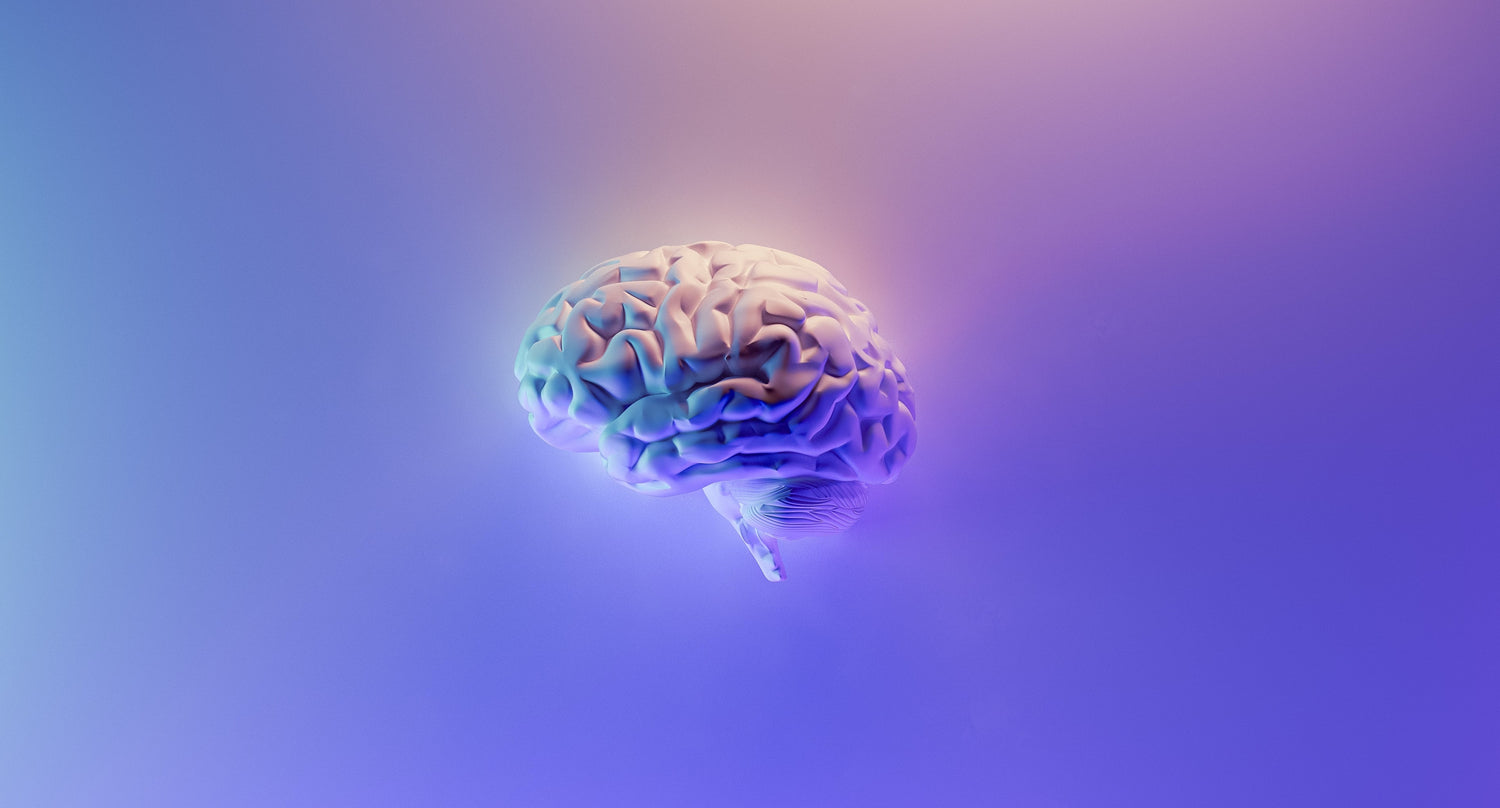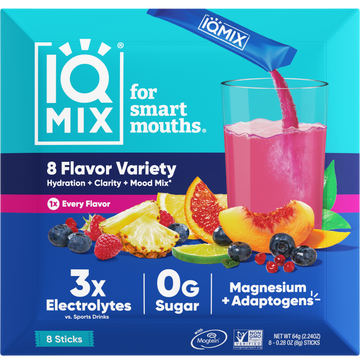Nootropics are exploding in popularity as more and more people recognize the cognitive benefits these supplements provide.
From students and young professionals to business owners and athletes, people everywhere are taking nootropics to give themselves a competitive edge, support brain health, and improve focus, productivity, and memory.
What exactly is a nootropic, which ones are best, and how do they work? These are the questions we’ll be answering in this article.
Let’s get started.
What Is a Nootropic?
Sometimes called “smart drugs,” “brain boosters,” or “cognitive enhancers,” nootropics are a class of substances that improve brain performance.
People typically take nootropics to enhance their memory and their ability to study or work with more focus, productivity, creativity, and motivation.
Certain prescription medications - typically those with stimulant effects - are considered nootropics and are often prescribed to treat conditions like ADHD, narcolepsy, and dementia. A couple of the most well-known nootropic drugs are Adderall and Ritalin.
Several natural substances are also considered nootropics, though. This is the subgroup of nootropics we’ll focus on in this article, as they’re available to everyone and have strong safety profiles.
The Best Natural Nootropics
If you’re new to the world of nootropics, you’re probably wondering which supplements to start with. Read on to discover six of the best natural nootropics and how they support brain function.
1. Lion’s Mane
Lion’s mane is an edible, unique-looking mushroom with roots in traditional Chinese medicine.
Often referred to as “the smart mushroom,” lion’s mane is receiving worldwide attention for its exceptional brain support potential. Several animal studies have shown that lion’s mane can reverse injury-related nerve damage, support the growth, maintenance, and survival of existing neurons, and boost nerve growth factor (NGF), which promotes the generation of new neurons.[*]
Unsurprisingly, when your neurons are healthier, your brain functions better. A 2009 study found that when a group of 50- to 80-year-old Japanese men and women with mild cognitive impairment regularly consumed a lion’s mane supplement for several weeks, they scored significantly higher on cognitive function tests than a control group.[*]
Additionally, animal studies have demonstrated that lion’s mane supports learning and memory and may reduce the risk of developing neurodegenerative diseases like Alzheimer’s and Parkinson’s.[*][*][*]
2. MCTs
Medium Chain Triglycerides (MCTs) are a type of saturated fat that have become all the rage as of late - and for good reason!
Foods high in MCTs are quite rare relative to those high in long-chain fatty acids. MCTs can be found in dairy products and palm kern oil, but coconut oil is the true rock star of this category, boasting an impressive 15 percent MCT oil.[*]
MCTs are digested differently than long-chain fatty acids. When long-chain acids are digested, they’re broken down in the intestines, circulated in the bloodstream, and then metabolized in the liver.
MCTs, on the other hand, are sent directly from the small intestine to the liver, where they’re quickly and easily broken down into ketones. Ketones are the brain’s only alternative fuel source to glucose (sugar) and provide a far more efficient, crash-free stream of energy.
Several studies indicate that MCTs not only provide cognitive energy, but also a higher quality of cognition. For example, one 2004 study found that adults with mild cognitive impairment were far more adept at paragraph recall after taking just one dose of MCT oil.[*]
To top it off, MCTs have been repeatedly shown to have brain-protective properties, helping to keep the brain healthy with age.[*][*]
3. Vitamin E
Over 90 percent of Americans don’t consume adequate quantities of vitamin E—one of the most overlooked brain health nutrients.[*]
Vitamin E is a powerful antioxidant that embeds itself into neuronal cell membranes, shielding them against free radicals and, consequently, preventing structural damage to the brain over time.
Many studies have linked vitamin E with improved cognitive function and reduced cognitive decline, especially in older adults. One such 2002 study found that healthy, elderly subjects with high vitamin E intakes performed significantly better than others on mental function questionnaires and memory tests.[*]
Another 2002 study found subjects with the highest vitamin E intake had a 36 percent reduction in the rate of cognitive decline.[*]
4. Flavonoids
Flavonoids are a diverse class of chemical compounds found in colorful fruits and veggies. These powerful compounds support brain health and cognition in a number of ways:[*][*][*]
- Increase blood flow to the brain
- Strengthen synaptic connections between neurons
- Activate new inter-neuron signaling pathways
- Inhibit inflammatory enzymes and their byproducts
The result of these effects is improved processing speed, executive function, working memory, and learning, as well as reduced cognitive decline.[*][*][*]
Widely available flavonoid supplements include quercetin, curcumin, silymarin, green tea extracts, and rutin. They can also be found in high concentrations in certain deeply-colored foods, such as berries and cocoa.
Psst!: Matcha, berries, and cocoa can be found in many IQBAR flavors!
5. Magnesium
Magnesium is an essential electrolyte that’s involved in over 300 biochemical processes within the body. A growing body evidence suggests that higher magnesium intake correlates with larger brain volume, better brain health, enhanced memory, better mental health, stronger mental performance in older adults, and a reduced risk of developing cognitive impairment.[*][*][*][*][*] In other words, this mighty mineral is basically a brain superhero.
Unfortunately, studies show that over half of Americans do not get the recommended daily amount of magnesium (420 mg for men and 320 mg/day for women). As such, most people could benefit from eating more magnesium-rich foods, such as leafy greens, almonds, cashews, pumpkin seeds, and dark chocolate.[*]
Boost Your Brain Health with Nootropics
Whether you’re a student, professional, athlete, or senior citizen, adding natural nootropics to your regimen is an excellent way to support your cognitive function and brain health.
One of the easiest (and most tasty!) ways to include these nootropics in your diet is by enjoying IQBARs. IQBAR is a keto and vegan protein bar made using clean, recognizable ingredients.
Each bar contains all five of the brain-boosting nutrients we discussed in this article: lion’s mane, MCTs, vitamin E, flavonoids, and magnesium. Plus, IQBARs contain 12 grams of plant-based protein, 6-9 grams of fiber, and only 2-3 grams of net carbs per bar.
Keep IQBARs in your cupboard, car, purse, or backpack so you’ll always have a healthy, energizing, brain-boosting snack within arm’s reach.




